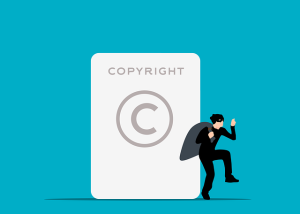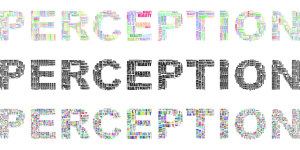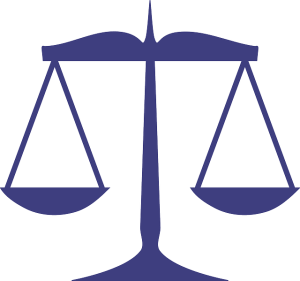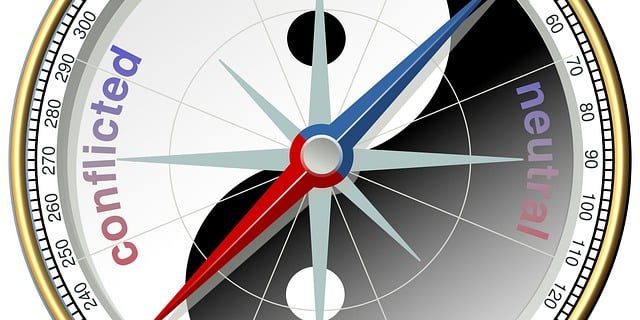Thinking of writing something, but you don’t know where to start?
Often writers get inspiration from several sources on topics and research when facing writer’s block. One can easily get carried away when inspiration and ideas strike.
Let’s go through some guidelines that could help when formulating content.

1. Data privacy
Writers should familiarise themselves with data privacy laws and the consequences of not respecting data privacy. It’s important to protect individuals and communities. Do not compromise the safety of individuals, and always get their consent before publishing content. Compliance builds trust.

2. Impacting society
As writers, we are responsible for how we shape society. It’s important to leave an overall positive influence rather than a negative. When writing content, be clear about your unique points of view on the impact/footprint you would like to leave on society. Be aware of the potential effects, especially when it comes to controversial and sensitive topics. Not everyone will understand your impact, and while others may support you, always be ready to receive all spectrums of critiques, which leads us to the next point.

3. Protecting freedom of speech
Words have implications, and not everyone will stand by the impact you want to make, and not everyone is going to get it. Being a writer is a privilege – allows freedom of speech. Be mindful of the implications of your words and be accountable for the impact they have. Reflect on your points of persuasion, engage thoughtfully with your words, and consider whether your points are for the greater good. Respect your audience and encourage informed decision-making rather than manipulation. This could impact powerful groups and incite violence, hate or discrimination.
 4. Plagiarism
4. Plagiarism
Plagiarism is a serious ethical breach. It is important to create original work rather than copying someone else’s work. When writers pass on someone else’s words as their own without attribution, they undermine trust and creativity. Commit to proper citations and originality. Let your voice be unique without using someone else’s to shine. Plagiarism can damage a writer’s reputation through loss of trust, and there are legal repercussions that come with it, such as legal action.

5. Truthfulness and accuracy
Writers have the responsibility to fact-check and verify information before publication. The audience trusts the writer, and the writer must provide accurate information. Misleading and false content can harm readers and skew their understanding of important issues. The writer’s trust comes from their integrity. If information comes from other sources, use only the information from credible sources to avoid misinforming the audience.

6. Bias and fairness
When citing information, avoid cherry-picking to bring across a biased point of view. Writing can be unconscious or conscious, hence why it could offer a biased point of view. While writing, be aware of how your own perspective can influence and shape narratives. Help the audience to decide for themselves. Present a balanced representation, ensuring all perspectives are considered. Highlight the complexity of individuals and communities, placing the content in the context of the topic and promoting critical thinking, inviting analysis and questions.

7. Respect for subjects
Respecting communities and individuals in writing requires a thoughtful approach to consent, privacy, and representation. Writers should obtain informed consent from individuals when sharing their stories, clearly communicating how their words will be used and allowing them the opportunity to opt-out. It’s crucial to honour the context of these stories and be sensitive to communities or individuals that have been marginalised. Writers must avoid exploiting vulnerable subjects for sensationalism or profit, prioritising dignity and well-being over the urge for compelling narratives. This involves accurately and authentically portraying subjects, striving to capture the true essence of their experiences and perspectives while embracing the complexities of human stories. Choosing the right words is essential to fostering empathy and compassion towards the subjects, individuals, or communities involved. Additionally, protecting the privacy of individuals is paramount; writers should carefully consider the potential ramifications of revealing personal information and maintain anonymity when necessary. By adhering to these principles, writers can contribute to a more ethical and respectful narrative landscape.
 8. Accountability
8. Accountability
Writers need to be aware of critique and open to also being corrected. Take full ownership of your content, acknowledging that words have consequences. Engage with feedback as it provides opportunity and room for growth and reflection. When writing, hold yourself accountable for the impact you want to make through your content.

9. Copyright
Understand copyright laws so that you can respect the intellectual property of others and protect your intellectual property. Writers should create their own content and avoid plagiarism. This will uphold copyright and foster creativity. When citing data from another source, respect the original creator’s information through proper attribution. Learn about copyright infringement and the consequences of not adhering to copyright laws. Stay clear of the potential of damaging your reputation. Not respecting copyright laws can lead to lawsuits.

10. Influence of digital media
When writing, consider the reach of digital media and incorporate diversity and inclusion in your content. With global access to social media at the touch of a button, anyone internationally can access your content. Content can go viral, and the points mentioned above are helpful to avoid consequences. Original content, creativity and transparency can help your content climb up the algorithm. With digital influence, plagiarism should be avoided through ethical sharing practices and by crediting the original author. Digital media is no exception when it comes to getting consent for the content being published as part of data and privacy policies.
Looking forward to our next discussion, in the meantime take a look at my entertaining and educational video on my YouTube Channel about Creative Writing: Leveraging the Art of Inspiration.
Drop us a comment below and follow us or share this article on Instagram, Tiktok, and Facebook.
Yours sincerely,
T. Dench Patel








